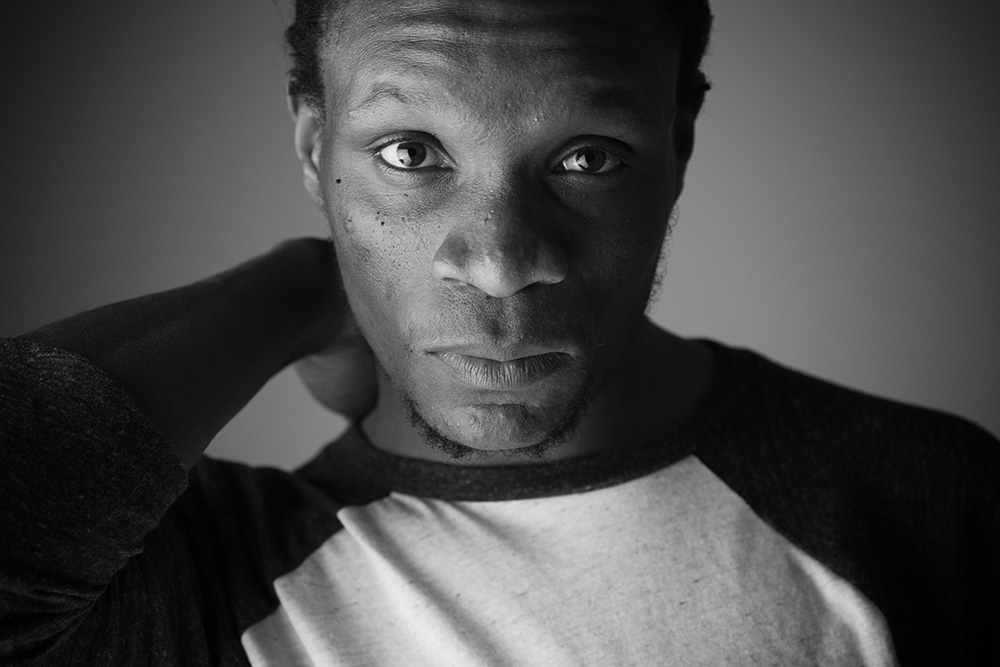Jamaica and music infuse Ishion Hutchinson's poetry
By Daniel Aloi

There is a contrast between honing an individual poem and the process of assembling a collection, assistant professor of English Ishion Hutchinson believes.
“A book is a different kind of experience,” he said, drawing a parallel to the artist Joseph Cornell, and “those magical boxes. Many poets are attracted to him, for good reason. You assemble pieces, and together they offer a rich experience.”
Hutchinson reflected on this in a discussion of the writing process for his second book of poetry, “House of Lords and Commons.” His previous collection, “Far District: Poems,” was published in 2010.
“There are poems that go back even further than the first book,” he said. “It takes some time to write, to get them to a certain state where I feel like they are ready to be out in the world. It’s a long process; as someone once said, ‘writing is rewriting.’ There’s all the revising, and the anguish of getting the music right.”

For Hutchinson, music is not only a subject but an apt descriptor for the rhythmic feel of his writing and his process of composition: “With poetry you only have language – that’s one instrument, to tune and twist and work into something over time.”
Many of his poems are inspired by his youth in Port Antonio, Jamaica, the island’s people and its natural beauty.
“I think about the landscape of my childhood, the variety and exquisite complexity of living in a place that offers so much,” he said. “I appreciate the richness of home, and I am still a part of it. The fauna of the landscape still grows – you’d think that all of that would have disappeared after the atrocity of slavery and colonialism.”
“House of Lords and Commons” has been well received, garnering glowing reviews in The New Yorker, The Guardian and The New York Times Book Review.
As the title of the collection may indicate, his work also balances political concerns with his homeland.
”The Caribbean, one can argue, is an invented world,” he said. “There are industries of damage – we’ve lost landscape to development, mainly resorts. It’s much more complex than that because these things do provide for people. It’s a form of change, not just building a building, but honoring the genius of the people. There’s a phrase from Bertolt Brecht – ‘the ingenuity of the oppressed’ – about that genius of surviving and resisting and being self-sufficient.”
Hutchinson came to Cornell in 2012 and is the Meringoff Sesquicentennial Faculty Fellow in the College of Arts and Sciences Department of English.
His research interests include poetry in translation and the long poem and the epic. He taught a course this fall that looked at the poetics of violence, from various versions and translations of Homer’s “The Iliad” through contemporary poet Solmaz Sharif’s National Book Award finalist “Look.” The students also wrote a Homeric sequence as a final exercise.
“We covered a lot of good material; it was clear we educated ourselves on how poets since Homer have responded to war. None of the students have an experience of war, but we live in a country that is at war,” he said, and quoted William Carlos Williams’ defense of poetry’s importance: “It is difficult to get the news from poems yet men die miserably every day for lack of what is found there.”
This is the kind of wisdom and advice he shares with young writers, including MFA poets in Creative Writing Program seminars.
“I hope they come in with their own passions and obsessions,” Hutchinson said. “I really love when a student comes to me with their own wacky idea. That’s when books come flying off the shelves. ‘Read this! Read this!’ It’s one of the great values of a teacher to put a book in your hand; to be a Baedeker.”
Media Contact
Get Cornell news delivered right to your inbox.
Subscribe